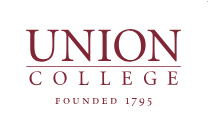How can Schaffer Library help?
Schaffer Library is here to support your research needs. Our services provide assistance during the entire lifecycle of your research:
- Data management plans. The library can support your data management planning. See Data Management Plans.
- Consultative services. As you begin your research, we can provide guidance and set up workflows to ensure consistency across your research lifecycle.
- Repository services. Schaffer Library supports the deposit and curation of faculty research data sets. This includes description / metadata to enhance discoverability, providing a permanent link to the data for use in publication, and long-term storage of the data set.
FAIR Principles

To ensure your data is FAIR, follow our Data Management Tips, and email digitalservices@union.edu for a consultation.
ORCID
An ORCID ID is a free, unique, persistent identifier (PID) that connects researchers with their professional activities and contributions. Benefits include:
- Unique ID
- Name flexibility
- Discovery
- Portable profile data
Learn more about how to create your ORCID ID at https://www.orcid.org. Librarians can help you establish your ORCID ID and connect your research to your profile.
What is research data management?
Faculty research can produce enormous amounts of files, data points, and other types of content during its lifecycle. Research data management involves the everyday management of this production as well as decisions about what happens to the data once the research is complete.
Examples of everyday management include:
- Consistent file naming conventions across researchers and platforms.
- Documentation of a data dictionary as the research is pursued.
- Review of systems and outputs to ensure that data is readable outside of the software package being used.
- Establishment of backup services.
Examples of data management for completed research include:
- Determining repository requirements for the data.
- Ability to reuse the data and reproduce it.
- Determining access restrictions, if any.
How can research data management ensure success?
Research data management is critical to the success of any research project. Some reasons to consider:
- Data production. Data -- just like books and journal articles -- is a scholarly product. It is, however, fragile and can be easily lost.
- External requirements. Funders and publishers often require data management and publication of sets.
- Management. Good management helps prevent errors, increase quality, validate, replicate, and share your research more easily.
